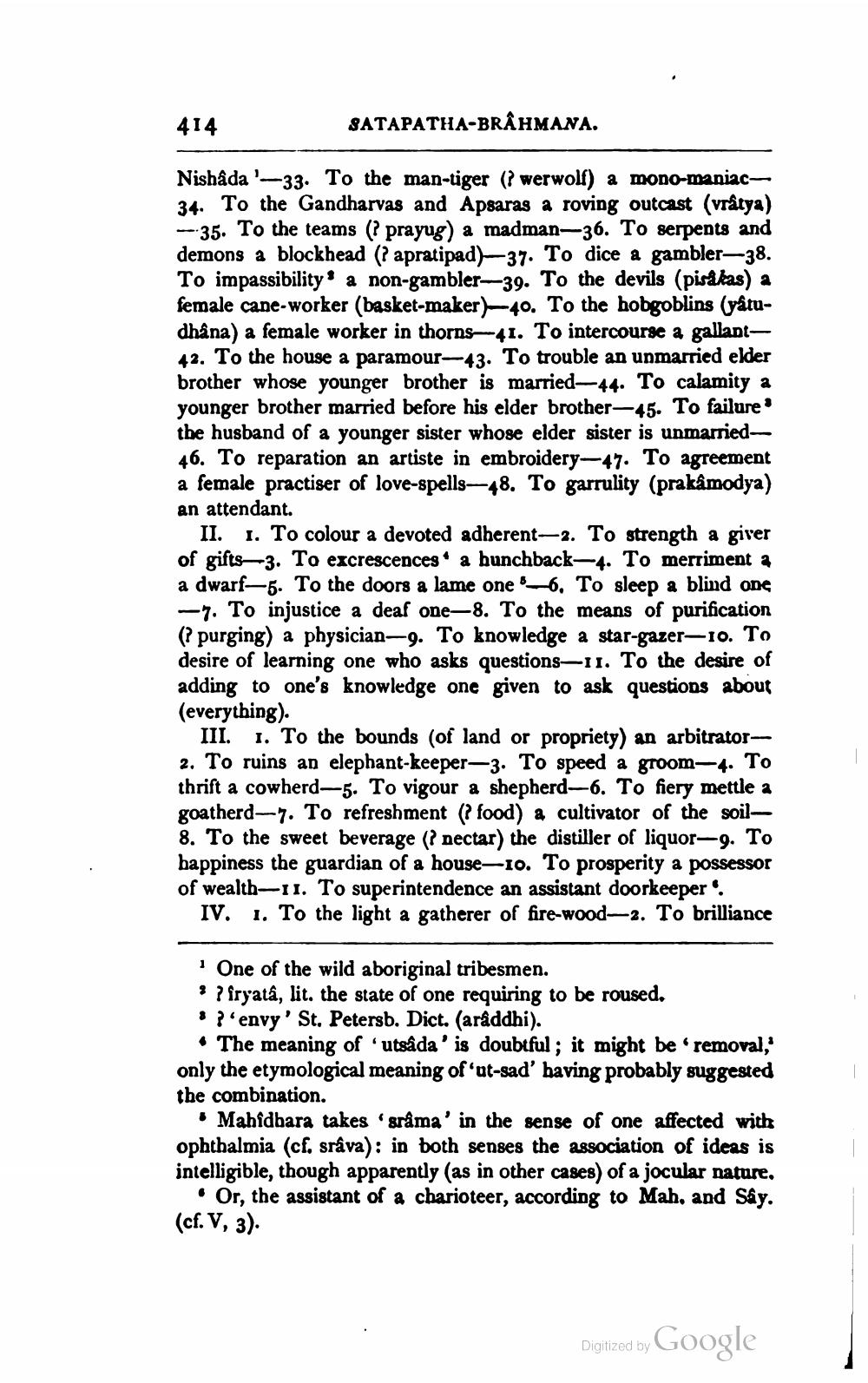________________
414
SATAPATHA-BRAHMANA.
Nishada '-33. To the man-riger (* werwolf) a mono-maniac34. To the Gandharvas and Apsaras a roving outcast (vrátya) --35. To the teams (? prayug) a madman—36. To serpents and demons a blockhead (? apratipad)-37. To dice a gambler-38. To impassibility: a non-gambler-39. To the devils (pisakas) a female cane-worker (basket-maker)-40. To the hobgoblins (yâtudhâna) a female worker in thorns-41. To intercourse a gallant42. To the house a paramour-43. To trouble an unmarried elder brother whose younger brother is married—44. To calamity a younger brother married before his elder brother-45. To failure the husband of a younger sister whose elder sister is unmarried 46. To reparation an artiste in embroidery-47. To agreement a female practiser of love-spells—48. To garrulity (prakåmodya) an attendant.
II. 1. To colour a devoted adherent—2. To strength a giver of gifts—3. To excrescences a hunchback-4. To merriment a a dwarf-5. To the doors a lame one-6. To sleep a blind one -7. To injustice a deaf one-8. To the means of purification (? purging) a physician-9. To knowledge a star-gazer-10. To desire of learning one who asks questions—11. To the desire of adding to one's knowledge one given to ask questions about (everything).
III. 1. To the bounds (of land or propriety) an arbitrator 2. To ruins an elephant-keeper—3. To speed a groom-4. To thrift a cowherd-5. To vigour a shepherd-6. To fiery mettle a goatherd-7. To refreshment (food) & cultivator of the soil 8. To the sweet beverage (? nectar) the distiller of liquor-9. To happiness the guardian of a house—10. To prosperity a possessor of wealth-II. To superintendence an assistant doorkeeper.
IV. 1. To the light a gatherer of fire-wood-2. To brilliance
· One of the wild aboriginal tribesmen. . ?fryatâ, lit. the state of one requiring to be roused. '?'envy' St. Petersb. Dict. (aråddhi).
• The meaning of 'utsåda' is doubtful; it might be removal, only the etymological meaning of 'ut-sad' having probably suggested the combination.
Mahidbara takes 'sråma' in the sense of one affected with ophthalmia (cf. srâva): in both senses the association of ideas is intelligible, though apparently (as in other cases) of a jocular nature.
Or, the assistant of a charioteer, according to Mah, and Say. (cf. V, 3).
Digitized by Google




